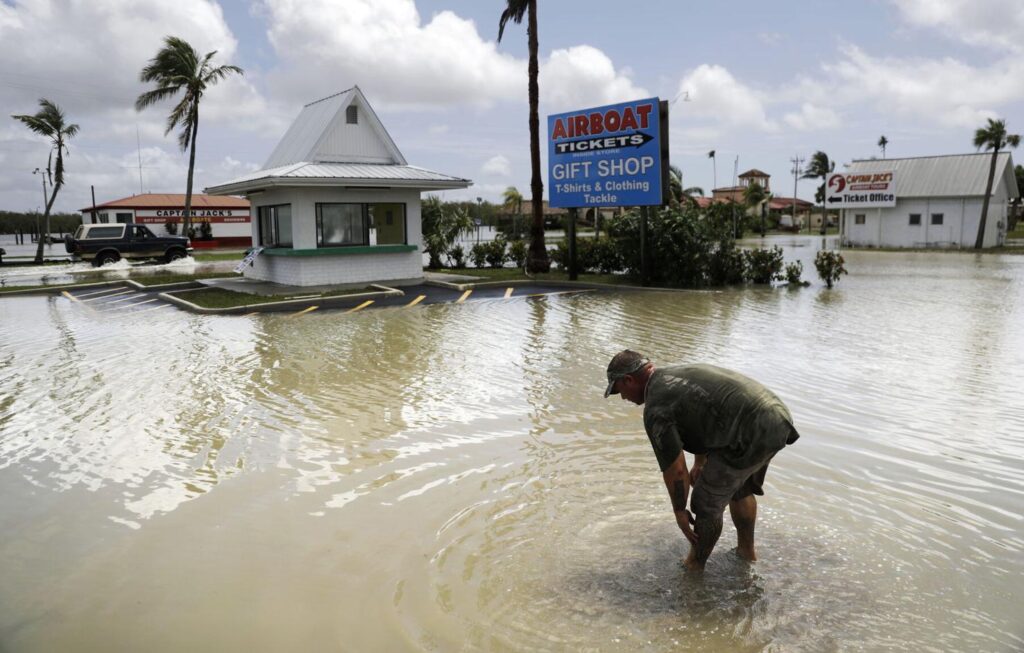The Center Square
By John Haughey
July 26, 2021

(The Center Square) – In November, Citizens Property Insurance Corp. – Florida’s state-backed “insurer of last resort” in a state abandoned by large corporate property insurers – predicted its enrollment would increase by more than 100,000 by the end of 2021 with 630,000 properties insured by the state.
Last week, Citizens announced it was carrying 638,263 policies as of June 30, up nearly 30,000 since May 31 and more than 160,000 from June 30, 2020, and revised its estimate to 766,000 enrolled by year’s end.
As property insurance rates skyrocket in Florida, Citizens will continue to become an increasingly more affordable option for Florida’s 6.5 million property owners, but an increasingly dangerous liability for the state’s taxpayers.
The surge is fueled by ballooning reinsurance costs, “loss creep” from 2017-18 hurricanes, coastal flooding and excessive litigation costs cited by private insurers who are raising rates as much as 30% to 40% as policies are renewed.
Citizens’ proposed 2021 rate package called for an average rate increase of 3.7% effective Aug. 1.
Last week, Citizens Board of Governors approved rate adjustments that will raise average premiums by an additional 2.3% in February 2022, if approved by the Office of Insurance Regulation (OIR).
The average rate increase for new and renewing policies after Aug. 1 will be 5.2%. For renewals after Feb. 1, 2022, rates will be going up 7.6%.
CEO Barry Gilway had warned Florida’s insurance market was “unhealthy” and predicted higher Citizens’ enrollment than forecast, said trend in spiking insurance premiums is not ending anytime soon, telling the board that the new enrollment estimate is 766,000 posit holders by Dec. 31, 2021.
February’s increase incorporate provisions of Senate Bill 76, which slashes the time to file claims from three years to two, reduces attorney “multiplier fees” and allows insurers to cover only the depreciated rather than full value of replacing roofs more than 10-years-old.
Under the law, contractors are prohibited from soliciting homeowners and offering incentives to file insurance claims and outlaws public insurance adjusters from offering incentives to inspect for roof damage.
The new law also lifts the 10% cap that will be gradually raised to 15% on premium increases for Citizens’ customers.
The bill also requires Citizens to calculate reinsurance costs to protect its surplus from a 100-year storm and direct policyholders into private insurance carriers if a private policy premium is within 20% of the comparable Citizens policy premium.
Chief U.S. District Judge Mark Walker in a July 18 ruling – a Sunday – found the SB 76 violates the First Amendment rights of roofing contractors and blocked parts of SB 76 from being implemented,
Walker’s ruling did not affect the provision lifting the 10% cap or other provisions relating to Citizens.
“These necessary adjustments reflect the efforts of the Florida Legislature to return Citizens to its role as a residual insurance company,” Citizens Chair Carlos Beruff. “Unfortunately, we have become the first choice, or only choice, in too many regions of the state.”
Citizens is a non-profit created by state lawmakers in 2002 to provide insurance to property owners unable to acquire coverage after major corporate insurers started to abandon the state in the early 2000s. Florida’s insurance market features about 60 independent operators that are relatively thinly-capitalized.
Enrollment in Citizens peaked in 2012 with 1.5 million policies. A “depopulation” program in tandem with private insurers pushed enrollment below 420,000 policies by 2015 where it remained steady through October 2019.

